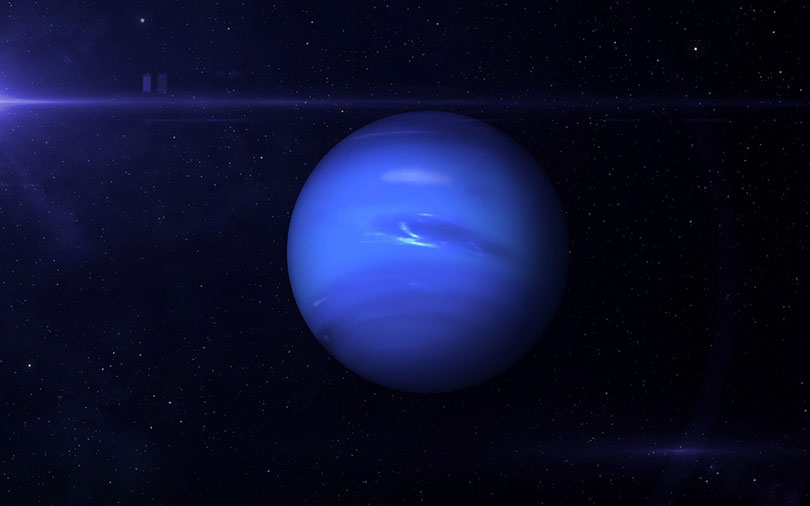How Cold Is Neptune? Is It The Coldest Planet?
Last Updated on

At approximately 2.8 billion miles (4.5 billion kilometers) away, Neptune is the farthest planet from the Sun and has an intriguing set of traits unlike any other place in the Solar System. If you’re interested in this blue ball of gas, you probably want to know how cold it gets there.
As it was discovered in the 19th century, scientists have been studying this location for centuries and have come to the conclusion that Neptune has a mean temperature of -373°F. That’s a chilly place to be, but it’s due to a couple of reasons that we’ll cover below.

Why Does Neptune Get So Cold?
As such a distant object in our solar system, it’s only natural for Neptune to have this frigid environment. Because the planet is around 30 times as far as the Earth is from the Sun, our last planet is so distant that there is very little sunlight being consumed, hence why the temperature is so low.
How Hot Can Neptune Get?
In contrast to the extremely low temperatures in the atmosphere and surface of Neptune, this planet actually has quite a hot core inside. It radiates more heat than it absorbs, but there isn’t much information out there as to what temperatures it gets up to. It would be difficult to get these measurements since there is no surface to land on to see what’s down there.

What Is Neptune Made Of?
The composition of this big blue planet mostly consists of the elements helium, hydrogen, and methane, all of which are in a gaseous form. By the way, the methane that makes up Neptune’s atmosphere is the reason why it looks blue, as it takes in all the red light coming in from the Sun.
Since it’s a gas giant, there is no real “crust” or land area. Instead, there are dark, cold clouds that continuously whip across its atmosphere.
Is Neptune the Coldest Planet?
Neptune is indeed the coldest planet on average in our Solar System, despite the fact that Uranus has the coldest recorded temperature of any planet. The eighth planet also has the coolest moon, which is named Triton. This satellite was analyzed and found to be -391°F when the spacecraft Voyager 2 passed by to gather new information. This is the lowest temperature we’ve ever known in our Solar System. It’s almost impossible to comprehend how cold it truly is.

Can Life be Sustained on Neptune?
If you were wondering if the blue gas giant is habitable, we’ve got some sad news. Unfortunately, the high pressures, low temperatures, and incredible wind speeds are too extreme to support biology here on Neptune. However, we can still observe this world from a distance with spacecraft fly-bys to learn more about it and what fascinating processes are active. Maybe one day in the future, our advancements in technology will allow us to dive a bit deeper into these environments. Until then, we’ll just have to sit back and watch!
Featured Image Credit by: buradaki, Shutterstock
About the Author Robert Sparks
Robert’s obsession with all things optical started early in life, when his optician father would bring home prototypes for Robert to play with. Nowadays, Robert is dedicated to helping others find the right optics for their needs. His hobbies include astronomy, astrophysics, and model building. Originally from Newark, NJ, he resides in Santa Fe, New Mexico, where the nighttime skies are filled with glittering stars.
Related Articles:
Binocular Magnification Chart: Numbers & Distances Compared
What Is the Best Binocular Magnification for Hunting? Optical Features Explained
When Were Binoculars Invented? History, Today & Future
Can You Use Binoculars to Look At Stars? How to Choose the Right Pair
15 Crucial Facts About Ultraviolet Rays & the Sun
What Constellation Is Spica In? The Interesting Answer!
10 Interesting Leo Constellation Facts, Myths, and FAQs
15 Interesting Pegasus Constellation Facts, Myths, and FAQs
